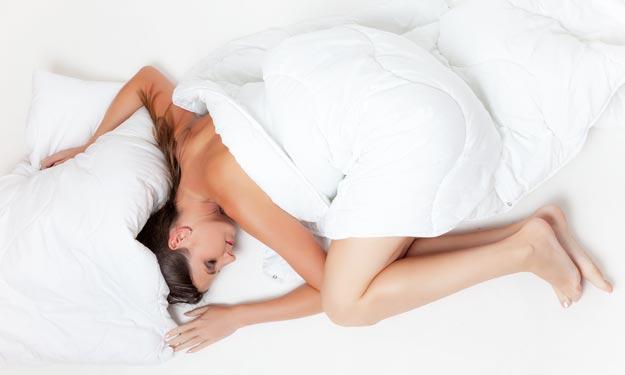How to Get a Better Night's Sleep
Many people struggle to get a good night's sleep, whether falling asleep, staying asleep, or waking up too early. Sleep is crucial for physical and mental health, yet more than one-third of American adults report not getting enough rest regularly. If you're one of them, you're not alone—and there are many ways to improve your sleep naturally, without jumping straight to prescription medications.
Sleep deprivation can lead to a host of problems, including weakened immunity, impaired concentration, increased risk of chronic diseases, weight gain, and emotional instability. Fortunately, by making simple changes to your habits, diet, and environment, you can improve your chances of enjoying deep, restorative sleep.
Common Causes of Poor Sleep
- Stress and anxiety: Racing thoughts and emotional stress can delay or disrupt sleep.
- Irregular sleep schedule: Going to bed and waking at different times each day confuses your internal clock.
- Blue light exposure: Devices emit blue light that interferes with melatonin production.
- Poor diet and late-night eating: Heavy or spicy meals close to bedtime can cause indigestion or heartburn.
- Lack of exercise: A sedentary lifestyle can contribute to poor sleep quality.
- Underlying conditions: Sleep apnea, chronic pain, acid reflux, or restless leg syndrome may be disrupting your sleep.
When to See a Doctor
Most sleep problems are temporary and can be solved with lifestyle changes. But seek medical advice if:
- You have insomnia for more than 3 weeks
- You snore loudly or stop breathing during sleep (possible sleep apnea)
- You experience vivid nightmares or restless legs
- Fatigue is affecting your ability to function
Home Remedies to Fall Asleep Faster
Improving your sleep starts with small, consistent changes to your daily routine. Whether you're using natural home remedies, trying OTC supplements, or simply committing to better habits, you can train your body to fall asleep faster, stay asleep longer, and wake up refreshed. Sleep is a pillar of good health—so treat it like the priority it is.
Maintain a consistent sleep schedule: Go to bed and wake up at the same time every day—even on weekends. This helps set your body's internal clock and improves sleep over time.
Create a calming pre-bedtime routine: Activities like taking a warm bath, reading a book, gentle yoga, or listening to relaxing music can signal to your brain that it's time to wind down.
Optimize your bedroom: Keep your sleeping area cool, dark, and quiet. Use blackout curtains and consider white noise machines or fans to block out ambient sound.
Use aromatherapy: Essential oils like lavender, chamomile, ylang-ylang, cedarwood, and bergamot have sedative properties that promote calm. Use a diffuser, pillow spray, or dilute a few drops into carrier oil for a relaxing massage.
Sleep teas: Sip a cup of herbal tea made with chamomile, lemon balm, passionflower, or valerian root about 30 minutes before bed to promote relaxation and drowsiness.
Foods and Nutrients That Support Better Sleep
Eat magnesium-rich foods: Magnesium helps muscles relax and supports healthy sleep patterns. Include leafy greens, almonds, pumpkin seeds, avocado, bananas, and yogurt in your meals.
Try foods high in tryptophan and B6: Turkey, salmon, sweet potatoes, and sunflower seeds help your body produce serotonin and melatonin, two hormones in sleep regulation.
Enjoy a bedtime snack: Light snacks like a banana with almond butter or a handful of walnuts can help reduce hunger without disturbing digestion.
Over-the-Counter Sleep Aids
- Melatonin supplements: Useful for resetting your body's clock, especially after jet lag or shift work. Use short-term and start with low doses (0.5 to 3 mg).
- Magnesium citrate or glycinate: Supports relaxation and muscle function.
- Valerian root capsules: A sedative herb that may reduce the time it takes to fall asleep.
- Diphenhydramine or doxylamine: OTC antihistamines found in sleep medications (e.g., Benadryl, Unisom), which can cause drowsiness but may lead to next-day grogginess if overused.
First Aid for Sleepless Nights
When you're lying in bed and can't sleep, avoid the temptation to stare at the ceiling or check your phone. Get up and do something relaxing in low light, like reading or meditating, until you feel drowsy. Avoid harsh light and don't stress about the time. Practicing mindfulness or progressive muscle relaxation can help quiet your thoughts and body.
Things to Avoid Before Bed
- Screen time: Turn off devices 30–60 minutes before bed. Use night mode if necessary.
- Caffeine and sugar: Avoid after mid-afternoon, especially in sodas, coffee, and chocolate.
- Alcohol: It may make you feel sleepy, but it can fragment your sleep later in the night.
- Late-night meals: Eat dinner 2–3 hours before bed to prevent indigestion.
- Stimulating activities: Skip intense exercise, suspenseful TV shows, or stressful conversations right before bedtime.
Tips for Shift Workers and Travelers
People who work night shifts or frequently travel across time zones often experience circadian rhythm disruption.
Here’s how to cope:
- Use blackout curtains or sleep masks during the day to block light and help simulate nighttime.
- Take melatonin supplements temporarily to shift your body’s clock.
- Limit caffeine use to the early part of your shift and avoid energy drinks later.
- Stick to your sleep schedule even on days off to maintain rhythm.


